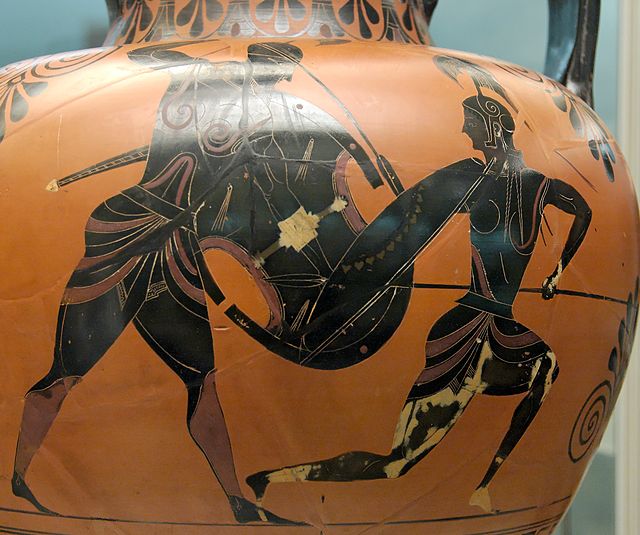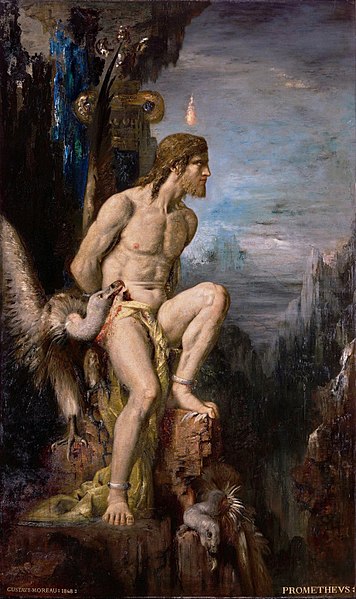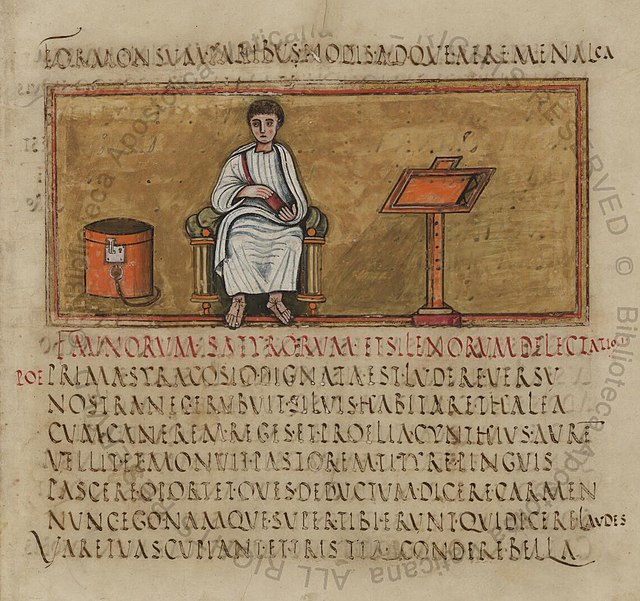In Greek and Roman mythology, Anchises was a member of the royal family of Troy. He was said to have been the son of King Capys of Dardania and Themiste, daughter of Ilus, who was son of Tros. He is most famous as the father of Aeneas and for his treatment in Virgil's Aeneid. Anchises' brother was Acoetes, father of the priest Laocoön.
William Blake Richmond's Venus and Anchises (1889 or 1890).
Aphrodite reveals baby Aeneas to Anchises (1st century AD)
Aeneas carrying Anchises from Troy. 520-510 BC.
Aeneas Bearing Anchises from Troy, by Carle van Loo, 1729 (Louvre)
Greek mythology is the body of myths originally told by the ancient Greeks, and a genre of ancient Greek folklore, today absorbed alongside Roman mythology into the broader designation of classical mythology. These stories concern the ancient Greek religion's view of the origin and nature of the world; the lives and activities of deities, heroes, and mythological creatures; and the origins and significance of the ancient Greeks' cult and ritual practices. Modern scholars study the myths to shed light on the religious and political institutions of ancient Greece, and to better understand the nature of myth-making itself.
Achilles and Penthesileia by Exekias, c. 540 BC, British Museum, London
Prometheus (1868 by Gustave Moreau). The myth of Prometheus first was attested by Hesiod and then constituted the basis for a tragic trilogy of plays, possibly by Aeschylus, consisting of Prometheus Bound, Prometheus Unbound, and Prometheus Pyrphoros.
The Roman poet Virgil, here depicted in the fifth-century manuscript, the Vergilius Romanus, preserved details of Greek mythology in many of his writings.
Phaedra with an attendant, probably her nurse, a fresco from Pompeii, c. 60 – c. 20 BC








